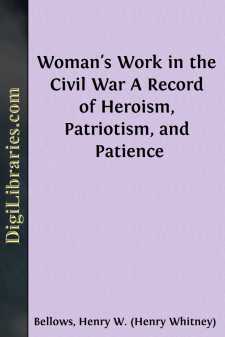History
- Africa 30
- Americas (North Central South West Indies) 50
- Ancient 68
- Asia 58
- Australia & New Zealand 8
- Canada 41
- Caribbean & West Indies 1
- Civilization 20
- Eastern Europe 12
- Europe 310
- Expeditions & Discoveries 60
- General 77
- Historical Geography 1
- Jewish 9
- Latin America 3
- Medieval 8
- Middle East 13
- Military 248
- Revolutionary 8
- Study & Teaching 5
- United States 353
- Western Europe 56
- World 13
History Books
Sort by:
by:
Peter C. Welsh
This history of woodworking hand tools from the 17th to the 20th century is one of a very gradual evolution of tools through generations of craftsmen. As a result, the sources of changes in design are almost impossible to ascertain. Published sources, moreover, have been concerned primarily with the object shaped by the tool rather than the tool itself. The resulting scarcity of information is somewhat...
more...
by:
Charles Seymour
CHAPTER I WILSON THE EXECUTIVE When, on March 4, 1913, Woodrow Wilson entered the White House, the first Democratic president elected in twenty years, no one could have guessed the importance of the rôle which he was destined to play. While business men and industrial leaders bewailed the mischance that had brought into power a man whose attitude towards vested interests was reputed none too friendly,...
more...
CHAPTER I The eleventh century, which culminated in the religious fervor of the First Crusade, must not on that account be considered as an age of unexampled piety and devotion. Good men there were and true, and women of great intellectual and moral force, but it cannot be said that the time was characterized by any deep and sincere religious feeling which showed itself in the general conduct of...
more...
The Age of the Countess Matilda of Tuscany The eleventh century, which culminated in the religious fervor of the First Crusade, must not on that account be considered as an age of unexampled piety and devotion. Good men there were and true, and women of great intellectual and moral force, but it cannot be said that the time was characterized by any deep and sincere religious feeling which showed itself...
more...
Chapter I French women of the sixteenth, seventeenth, and eighteenth centuries, when studied according to the distinctive phases of their influence, are best divided into three classes: those queens who, as wives, represented virtue, education, and family life; the mistresses, who were instigators of political intrigue, immorality, and vice; and the authoresses and other educated women, who constituted...
more...
by:
Helen Fraser
CHAPTER I THE SPIRIT OF WOMEN TO WOMEN Your hearts are lifted up, your hearts That have foreknown the utter price, Your hearts burn upward like a flame Of splendour and of sacrifice. For you too, to battle go, Not with the marching drums and cheers, But in the watch of solitude And through the boundless night of fears. And not a shot comes blind with death, And not a stab of steel is pressed Home, but...
more...
PREFACE. The preparation of this work, or rather the collection of material for it, was commenced in the autumn of 1863. While engaged in the compilation of a little book on "The Philanthropic Results of the War" for circulation abroad, in the summer of that year, the writer became so deeply impressed with the extraordinary sacrifices and devotion of loyal women, in the national cause, that he...
more...
by:
Carl Holliday
CHAPTER I I. The Spirit of Woman With what a valiant and unyielding spirit our forefathers met the unspeakable hardships of the first days of American colonization! We of these softer and more abundant times can never quite comprehend what distress, what positive suffering those bold souls of the seventeenth century endured to establish a new people among the nations of the world. The very voyage from...
more...
CHAP. I. Bethulie Concentration Camp, August, 1901. Wednesday, August 21.—Arrived station 8.30 a.m. (from Bloemfontein); tedious delay; no pass to village obtainable, official in village for breakfast; number of refugees in same train, among them a sick girl, with fever: "Pappie, Pappie, ach mij ou Pappie!" ("Daddy, daddy! O my dear daddy!" Thus she cried whenever she was touched, as...
more...
CHAPTER I Outbreak of the war—The Transport Service and despatch of Army Corps from Southampton—Departure of a Naval Brigade from England and landing at Capetown and Durban—I join H.M.S. Philomel. During a short leave of absence in Scotland, after my return from Flag-Lieutenant's service in India with Rear-Admiral Archibald L. Douglas, that very kind friend, now Lord of the Admiralty,...
more...











